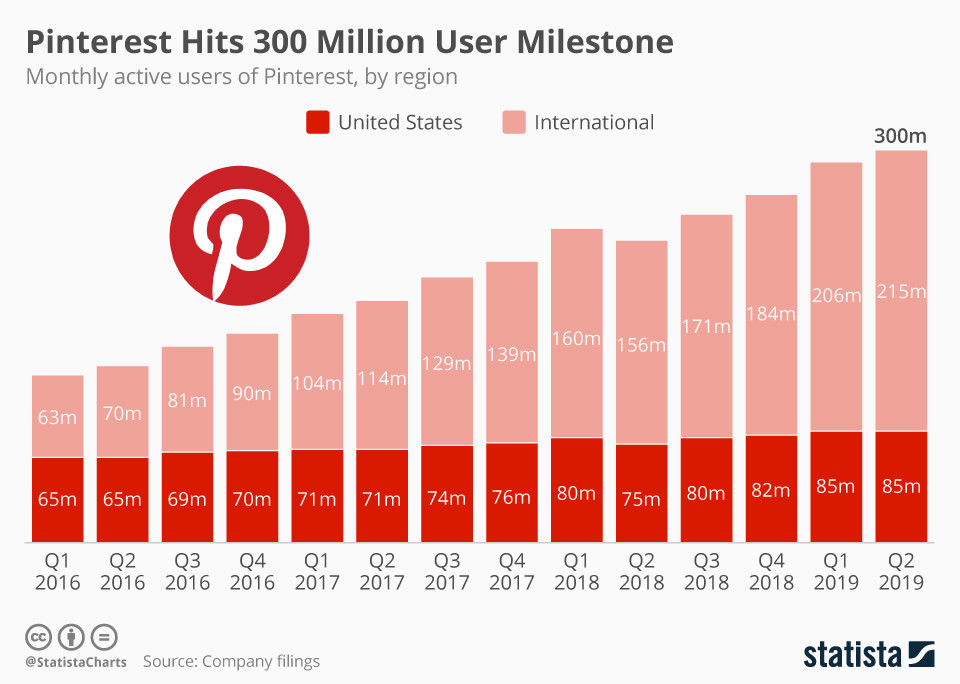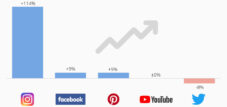When Pinterest sought an IPO in late March, it gave the public a behind-the-scenes look, revealing how it views itself, how it performs financially and, perhaps most interestingly, how many people actually use it.
The first point is a little tricky because Pinterest is widely considered a social network, although it does not consider itself one. “Most of the consumers' Internet companies are either tools (search, e-commerce) or media (news feeds, videos, social networks). Pinterest is not a pure media channel, nor is it a pure benefit. It is a media-rich benefit that satisfies both emotional and functional needs, ”wrote the company in its S1 registration and came to the conclusion that its platform is ultimately about discovery. Financially, Pinterest is better than many other internet companies at the time of their IPO, whereby the net losses of $ 130 million decreased to $ 63 million last year in 2017, which indicates that profitability is not just a distant dream.
The ultimate question for most social media platforms, no “media -rich utilities”, is how many people actually use it. In the case of Pinterest, this is now 300 million people, which she puts close behind Twitter when she last reported this key figure in the first quarter of 2019. In contrast to the latter, the user base of Pinterest still grows at a reasonable pace. Between the second quarter of 2018 and the second quarter of 2019, the company has gained 69 million active users per month, which is particularly due to strong international growth.
When Pinterest filed for an initial public offering in late March, it provided the public with a glimpse behind the curtain, revealing how it sees itself, how it's doing financially and, perhaps most interestingly, how many people actually use it.
The first point is a bit of a tricky one, as Pinterest is widely seen as a social network despite but doesn't consider itself one. “Most consumer internet companies are either tools (search, e-commerce) or media (news feeds, video, social networks). Pinterest is not a pure media channel, nor is it a pure utility. “It’s a media-rich utility that satisfies both emotional and functional needs,” the company wrote in its S1 filing, concluding that its platform is ultimately about discovery. Financially, Pinterest is doing better than many other internet companies are at the time of their IPO, with net losses dropping from $130 million in 2017 to $63 million last year, suggesting that profitability isn't just a distant dream.
The ultimate question for most social media platforms, nay “media-rich utilities”, is how many people actually use it. In Pinterest's case that is now 300 million people, putting it close behind Twitter when it last reported that metric in Q1 2019. As opposed to the latter, Pinterest's user base is still growing at a decent pace, however. Between Q2 2018 and Q2 2019, the company added 69 million monthly active users, mainly thanks to strong international growth.


